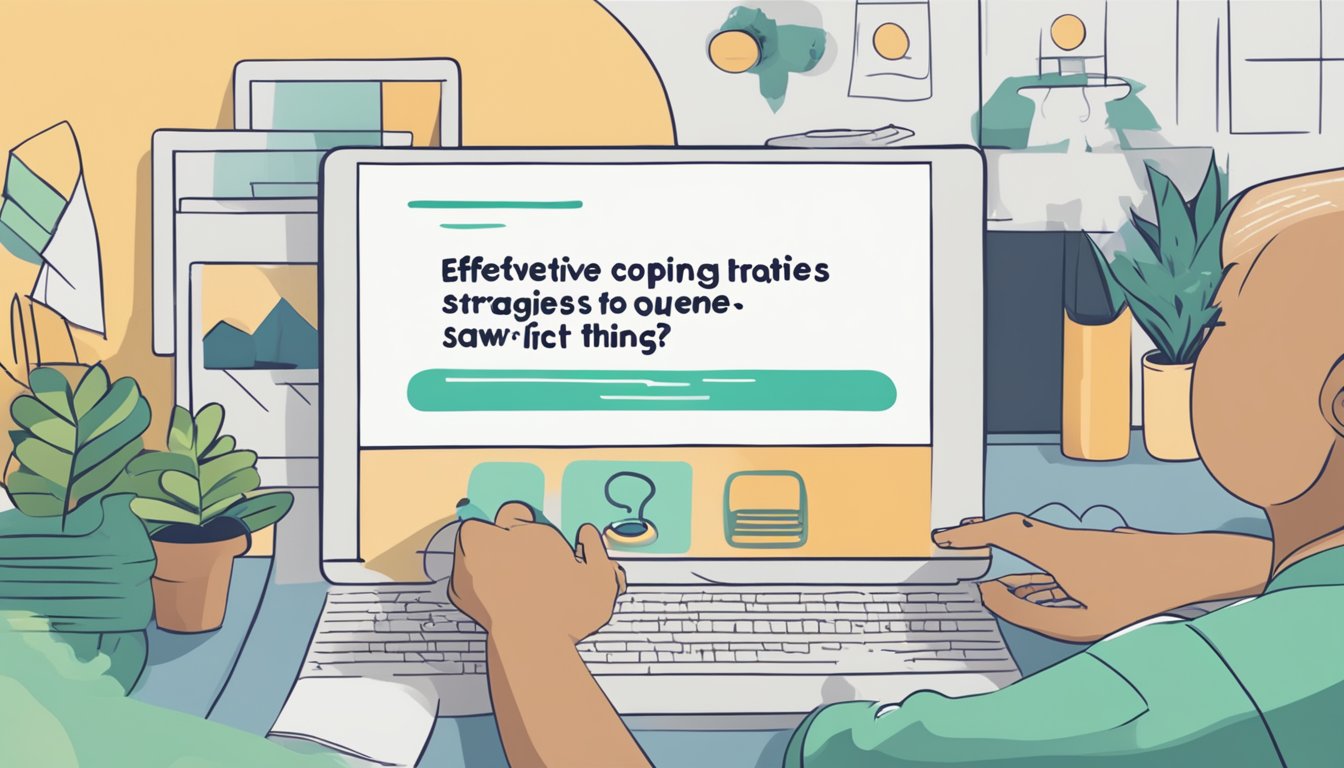If you find that your mom says hurtful things to you, it can be a confusing and painful experience. You may feel like you’re not good enough or that you’re to blame for her behavior. However, it’s important to remember that her words are not a reflection of your worth as a person.

Understanding emotional abuse can be helpful in recognizing when your mom’s words cross a line. Emotional abuse involves behaviors that are intended to control, manipulate, or degrade another person. Hurtful words are a common form of emotional abuse, and they can have long-lasting effects on your self-esteem and mental health.
The psychology behind hurtful words can be complex, and there may be many factors that contribute to why your mom says them. It’s possible that she’s dealing with her own emotional issues, or that she’s repeating patterns of behavior that she learned from her own parents. Regardless of the reasons behind her hurtful words, it’s important to prioritize your own well-being and find effective coping strategies to deal with the situation.
Key Takeaways
- Understanding emotional abuse can help you recognize when your mom’s words cross a line.
- Hurtful words can have long-lasting effects on your self-esteem and mental health.
- It’s important to prioritize your own well-being and find effective coping strategies to deal with the situation.
Understanding Emotional Abuse

Emotional abuse is a pattern of behavior that can occur in any relationship, including between a parent and child. It involves using words, actions, or lack of action to control, manipulate, or harm someone emotionally. Emotional abuse can be just as damaging as physical abuse, but it can be harder to recognize because it often happens behind closed doors.
Some signs of emotional abuse from a parent include:
- Constant criticism or belittling
- Name-calling or insults
- Threats or intimidation
- Blaming you for their problems or emotions
- Withholding affection or attention
- Ignoring your feelings or needs
- Gaslighting or making you question your own reality
It’s important to understand that emotional abuse is not your fault. You are not responsible for your parent’s behavior, and you deserve to be treated with respect and kindness.
If you think you may be experiencing emotional abuse from your mother, it’s important to seek support from a trusted adult, such as a teacher, counselor, or family member. You can also reach out to a hotline or online resource for help.
Remember, you have the right to a safe and healthy home environment, and there are people who can help you.
The Psychology Behind Hurtful Words

It’s not uncommon for parents to say hurtful things to their children. However, it’s important to understand that this behavior is not healthy or normal. There are several reasons why a parent may say hurtful things to their child, including:
Projection
Sometimes, parents may project their own insecurities and negative emotions onto their children. For example, if a parent is feeling inadequate or unimportant, they may say hurtful things to their child to make themselves feel better.
Control
In some cases, parents may use hurtful words as a way to control their child’s behavior or emotions. This can be particularly damaging as it can lead to feelings of guilt and shame in the child.
Lack of Communication Skills
Some parents may simply lack the communication skills necessary to express their emotions in a healthy way. Instead, they may resort to hurtful words as a way to express their frustration or anger.
Cycle of Abuse
Unfortunately, some parents may have grown up in abusive households themselves and may not know how to communicate in a healthy way. As a result, they may perpetuate the cycle of abuse by saying hurtful things to their own children.
It’s important to remember that none of these reasons excuse hurtful behavior. If you are experiencing hurtful words from your mother, it’s important to seek support from a trusted friend or family member, or a mental health professional.
Impacts of Negative Communication

Negative communication from your mother can have a significant impact on your mental and emotional well-being. Here are some of the potential impacts of hurtful comments from your mom:
-
Low self-esteem: Negative comments can make you doubt yourself and your abilities, leading to low self-esteem. You may feel like you’re not good enough or that you can’t do anything right.
-
Anxiety and depression: Constant criticism and negative comments can lead to feelings of anxiety and depression. You may feel like you’re constantly on edge and that nothing you do is ever good enough.
-
Difficulty forming healthy relationships: If you’re used to negative communication from your mother, you may struggle to form healthy relationships with others. You may be more likely to tolerate toxic behavior from others because it feels familiar.
-
Difficulty trusting others: If your mother has said hurtful things to you in the past, you may find it difficult to trust others. You may be afraid that others will hurt you in the same way.
-
Physical health problems: Chronic stress from negative communication can lead to physical health problems like headaches, stomachaches, and high blood pressure.
It’s important to recognize the impact that negative communication can have on your life. If you’re struggling with the effects of hurtful comments from your mother, it may be helpful to talk to a therapist or counselor who can help you work through your feelings and develop healthy coping strategies.
Effective Coping Strategies

If you find yourself struggling to cope with the hurtful things your mom says, there are a few strategies you can try to help you manage your emotions and improve your mental wellbeing. Here are some effective coping strategies to consider:
Self-Care
Taking care of yourself is essential when dealing with difficult emotions. Here are some self-care strategies that you can try:
- Practice mindfulness meditation to help you stay present and calm in the moment.
- Engage in physical activity such as yoga or running to help reduce stress and improve your mood.
- Get plenty of sleep to help you feel rested and refreshed.
- Eat a healthy, balanced diet to nourish your body and mind.
- Spend time with friends and family who are supportive and understanding.
Seeking Professional Help
Sometimes, coping strategies alone may not be enough to help you deal with the emotional pain caused by your mom’s hurtful words. In these cases, seeking professional help can be beneficial. Here are some options to consider:
- Talk to a therapist who can provide you with a safe and supportive space to process your emotions and develop healthy coping strategies.
- Consider joining a support group for people who have experienced similar situations.
- Consult with a psychiatrist who can assess whether medication may be helpful for managing your symptoms.
Remember, it’s important to prioritize your mental health and wellbeing. Don’t hesitate to reach out for help if you need it.
Frequently Asked Questions

Why does my mom always find fault in me?
It’s natural to feel like your mom is always criticizing you, but it’s important to understand that her behavior is not a reflection of your worth as a person. She may be projecting her own insecurities onto you, or she may have unrealistic expectations of you. It’s important to communicate with her and try to understand where she’s coming from, but also remember to set boundaries and stand up for yourself when necessary.
Why is my mom mean to me but not my siblings?
It’s possible that your mom has a different relationship with each of her children, or that she sees different traits in each of you that she responds to differently. However, if you feel like your mom is consistently favoring your siblings over you, it’s important to communicate your feelings with her and try to work towards a more equitable relationship.
Why does my mom blame me for things I didn’t do?
It can be frustrating and hurtful when your mom accuses you of things you didn’t do. However, it’s important to remember that her behavior is not necessarily a reflection of your actions. She may be projecting her own feelings onto you, or she may be struggling to take responsibility for her own mistakes. It’s important to communicate with her and try to understand where she’s coming from, but also remember to stand up for yourself and set boundaries when necessary.
Is my mom toxic or am I overreacting?
If you feel like your mom’s behavior is consistently hurtful or damaging, it’s important to take your feelings seriously. It’s possible that your mom is exhibiting toxic behavior, such as manipulation, control, or emotional abuse. However, it’s also possible that you may be overreacting or misinterpreting her behavior. It’s important to seek the advice of a trusted friend or mental health professional to help you navigate your feelings and determine a course of action.
Why does my mom say things to make me feel guilty?
It’s common for parents to use guilt as a way to motivate their children, but it’s important to recognize when this behavior becomes harmful or manipulative. Your mom may be using guilt to control you or make you feel responsible for her emotions. It’s important to communicate with her and set boundaries around this behavior, while also working to build a healthy and supportive relationship.
Why does my mother always yell at me?
Your mom may be yelling at you because she feels frustrated, overwhelmed, or out of control. However, it’s important to remember that yelling is not an effective or healthy way to communicate. If you feel like your mom’s yelling is consistently hurtful or damaging, it’s important to communicate with her and set boundaries around this behavior. It may also be helpful to seek the advice of a mental health professional to help you navigate your feelings and develop strategies for coping with this behavior.
